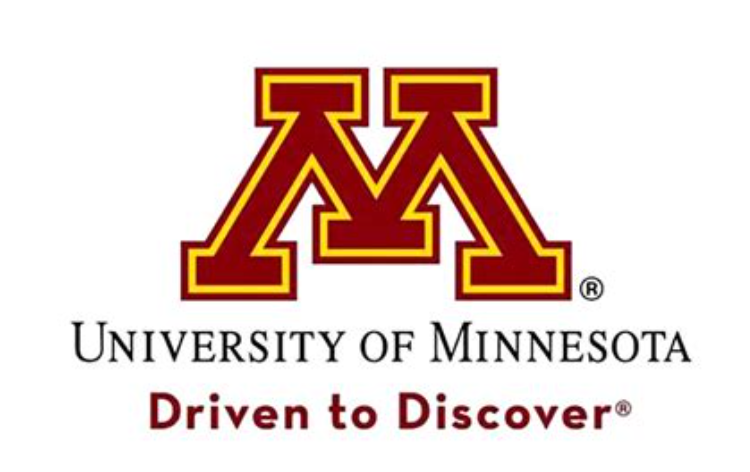Founding Director & Endowed Chair, Center for Inflammation Science
The University of Minnesota Medical School invites applications for the Founding Director of the Center of Inflammation Sciences.
- Position:
- Founding Director & Endowed Chair, Center for Inflammation Science
- Specialty:
- Leadership, Diabetes, Metabolism, Clinical Research, Principal Investigator, Biomedical Engineering, Integrative Biology, Physiology, Cardiovascular Disease, Obesity, Metabolism
- Location:
- Minneapolis, MN

Founding Director, Center for Inflammation Sciences (CIS)
The Department of Integrative Biology and Physiology and the University of Minnesota Medical School is seeking an outstanding, tenured faculty member as the Founding Director of the Center for Inflammation Sciences (CIS). We seek exceptional faculty candidates with established research programs in the study of inflammation in health and disease, from an integrative molecular to systems physiology perspective.
Areas of Interest
Areas of particular interest include sterile inflammation and innate and adaptive immunology as related to the cardiovascular system, muscle, metabolism, diabetes, obesity, stress and related fields. The Director will lead the Center and articulate the vision, mission and integration of the center within the exceptional academic medical center framework.
Substantial Resources
The Director will be given substantial resources to recruit additional tenure-track faculty members to further grow and strengthen the network of faculty studying inflammation in health and disease, including leading the development of NIH programmatic and center grant initiatives. The director will be conferred as the Bacaner Endowed Chair in Physiology. Substantial resources, with state-of-the-art research space, is committed to this effort.
Required Qualifications
Successful candidates will have an established and innovative research program that embraces biological complexity and physiology from molecular building blocks to the living organism and human disease. Applicants must have a strong record of research accomplishments, as documented by publications in leading peer-reviewed journals along with an outstanding record of extramural funding. Minimum requirements are a PhD, MD or MD/PhD with tenure at an academic research institution.
Strategic Collaborations / Centers of Excellence
The successful applicant will be a highly collaborative and inclusive leader that seeks to leverage some of the University’s world class Institutes/Centers/Departments, including but not limited to:
- Department of Integrative Biology & Physiology (IBP)
- UMN Center for Immunology
- Lillehei Heart Institute
- IBAM – Institute for the Biology of Aging & Metabolism
- IDOM – Institute for Diabetes, Obesity & Metabolism
- Masonic Cancer Center
- Center for Magnetic Resonance Research
Additional Resources Include
- Exceptional on-site research core facilities include the:
- Physiology Core
- Minnesota SuperComputing Institute
- University Imaging Center
- Mouse Genetics Laboratory
- and many others.
- Education & Training
- There are also several active and relevant training grant (T32) programs that offer pre- and post-doctoral support for training students and fellows in several areas, including obesity/diabetes, aging, muscle biology and cardiology.
Position Specifics
Founding Director, Center for Inflammation Sciences
The University of Minnesota Medical School and the Department of Integrative Biology and Physiology invite applications and nominations for an outstanding scientific leader to serve as the Founding Director of the Center for Inflammation Sciences (CIS). The Founding Director will be conferred as the Bacaner Endowed Chair in Physiology, and their tenure-track departmental home will be embedded within the Department of Integrative Biology & Physiology.
Substantial resources, with state-of-the-art research space, is committed to this effort. Successful candidates will have an established and innovative research program that embraces biological complexity and physiology from molecular building blocks to the living organism and human disease. Applicants must have a strong record of research accomplishments, as documented by publications in leading peer-reviewed journals along with an outstanding record of extramural funding. Minimum requirements are a PhD, MD or MD/PhD with tenure at an academic research institution.
Department of Integrative Biology and Physiology
This new department of Integrative Biology and Physiology at the University of Minnesota is central to the mission of the Medical School and University. The department stands on the shoulders of legends, most notably Professor Maurice Visscher who, more than 50 years ago, had the vision to reach across disciplines in the quest for knowledge discovery. This was a huge leap forward as most everyone then built departments as silos—not daring to seek cross-disciplinary interactions. Visscher’s efforts helped launch a remarkable period of biomedical growth and discovery, particularly in cardiovascular biology and disease, where landmark breakthroughs in portable cardiac defibrillators and cardiac open heart repair were envisioned and brought to fruition.
In this spirit, the Department of Integrative Biology and Physiology emerges. Our research centers on integrative systems biology of the heart and vasculature, including the close linkages among cardiovascular diseases and obesity, diabetes and metabolism at the whole animal level. The department is ideally positioned to bridge basic science discoveries to clinically relevant applications, spanning from academia to our neighbors in the biomedical industry. The spotlight is on Minnesota as a rising star in cardiovascular research. We welcome new faculty and students who embrace this vision.
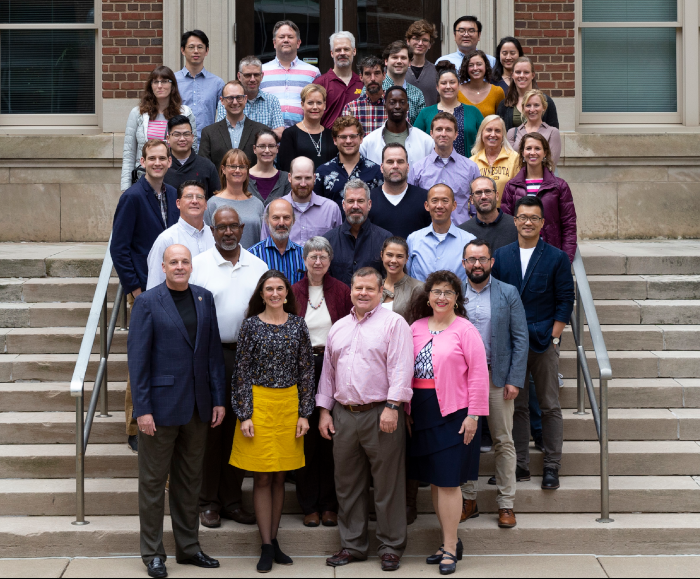
Institute for Diabetes, Obesity & Metabolism
The Institute for Diabetes, Obesity and Metabolism at the University of Minnesota is uniquely poised to become a premier research institute that is focused on advancing knowledge of the pathophysiology of diabetes and its complications through cutting edge research.
The mission of the Institute for Diabetes, Obesity and Metabolism (IDOM) is to enhance research quality by growing multidisciplinary collaborations in diabetes research by creating a rich environment that unites diabetes investigators through enrichment and training opportunities, to provide access to pilot funds, and to make cost-effective animal physiology services available to members of the IDOM. Our goal is to create the environment and infrastructure necessary to support funded diabetes investigators and the integration of their data into our greater understanding of the whole of diabetes.
We are committed to creating a research environment that supports fundamental projects designed to understand the basic biology of the disease and then translating these findings to humans. This commitment will ensure that our basic findings are relevant to the human model and support of the development of new ways to prevent and treat the disease and its complications.
Institute for the Biology of Aging & Metabolism
The University of Minnesota’s Institute on the Biology of Aging and Metabolism is an interdisciplinary, trans-departmental endeavor across the University of Minnesota Medical School to advance research on the fundamental biology of aging. We are embracing the Geroscience approach to aging research. This stems from the knowledge that old age is the greatest risk factor for most chronic diseases, often by orders of magnitude. This includes diabetes, osteoarthritis, cancer, and Alzheimer’s disease. For decades, we have avidly managed disease risk factors, such as high cholesterol and blood pressure, yet ignored the greatest risk factor for disease: being old. Geroscientists aim to discover fundamental mechanisms of aging that can be therapeutically targeted to diminish the risk of all diseases of old age with a single intervention.
The long-term vision of the Medical Discovery Team on the Biology of Aging and the Institute on the Biology of Aging and Metabolism is to discover ways to therapeutically target aging, which will enable extending the healthspan (the period of good health in old age) and quality of life for the elderly in the state of Minnesota and beyond.
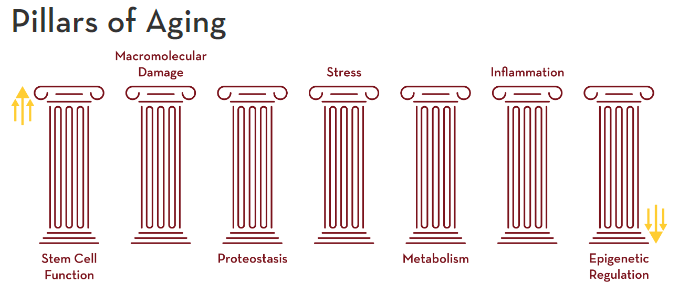
UMN Center for Immunology
The Center for Immunology is an interdisciplinary unit at the University of Minnesota Medical School devoted to advancing the field of immunology and educating future immunologists.
Our mission is to coordinate and promote efforts in basic immunology research, education, and clinical applications at the University of Minnesota where we have a rich tradition of research accomplishments in immunology. Pioneering work in the development of the immune system and tumor immunology/ immunodeficiency was led by Dr. Robert Good and his colleagues in the 1960s and early 1970s. During this same time period, internationally recognized programs in major organ and bone marrow transplantation were developed at Minnesota.
Recent initiatives have included the:
- Recruitment of numerous immunologists to the University of Minnesota over the past ten years
- Establishment of the graduate program in microbiology, immunology, and cancer biology in 1995
- Coordination of immunology research activities through the University of Minnesota Medical School by the formation of the Center for Immunology
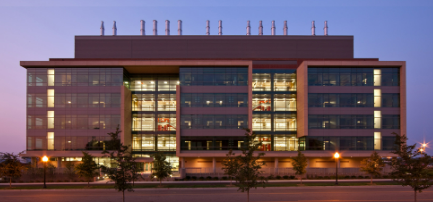
Minnesota Supercomputing Institute
For over 40 years the Minnesota Supercomputing Institute (MSI) has been proudly serving and collaborating with the University of Minnesota research and scholarly community and external partners across all areas of human inquiry. Since our inception, computations have become an inseparable tool to accelerate scientific inquiry for many disciplines and data intensive research is now reshaping what we once thought possible. As the need for computational and data intensive resources continues to grow, MSI will work to provide state-of-the-art compute and storage solutions to meet these new demands and to serve as a nexus for meaningful collaborations.
Our goals are to:
- Ensure high quality, state of the art computing infrastructure to advance science, engineering, and society through advanced research computing.
- Ensure high-quality expertise and capabilities to develop innovative solutions in support of compute- and data-intensive research.
- Partner with the University of Minnesota research and scholarly community and their collaborators to enable projects that require advanced research computing.
- Deliver solutions effectively and efficiently and be responsive to user needs. Provide computational services to users outside of the University of Minnesota.

UMN Clinical & Translational Science Institute
The Clinical and Translational Science Institute (CTSI) at the University of Minnesota is enhancing the way research is conducted to make a meaningful impact on people’s lives. Our mission: Accelerate discoveries toward better health.
CTSI is part of the prestigious Clinical and Translational Science Award (CTSA) program, which aims to get interventions to patients and populations more quickly and enable research teams to tackle system-wide problems in clinical and translational research.
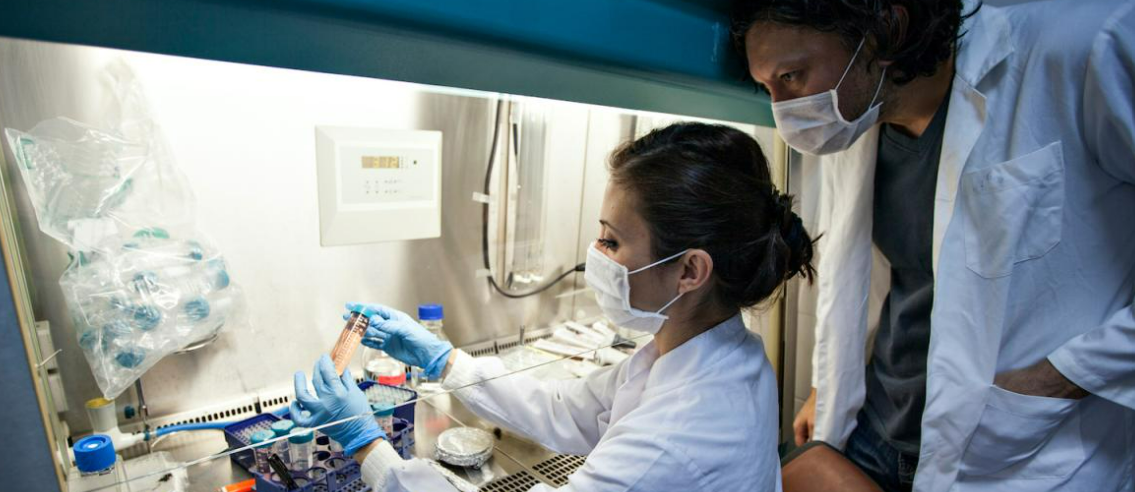
University of Minnesota Medical School
Founded in 1888, the University of Minnesota Medical School educates students and graduate physicians, provides patient care, and performs biomedical and clinical research.
We offer medical, graduate and undergraduate degree programs, as well as continuing professional development. Our Medical School is one of the largest in the country, with two campuses based in the Twin Cities and Duluth, Minnesota. The Twin Cities campus is an interdisciplinary research center. Our Duluth campus educates 130 first and second-year medical students committed to practicing in rural or American Indian communities.
The Mission of the University of Minnesota Medical School is to be a leader in enhancing the health of people through the education of skilled, compassionate and socially responsible physicians. With two campuses serving diverse populations in rural and urban Minnesota, the Medical School is dedicated to preeminent primary care medicine, exemplary specialty care and innovative research.
Want to learn more about the amazing work happening at the University of Minnesota Medical School? Visit their website to explore further via this link.
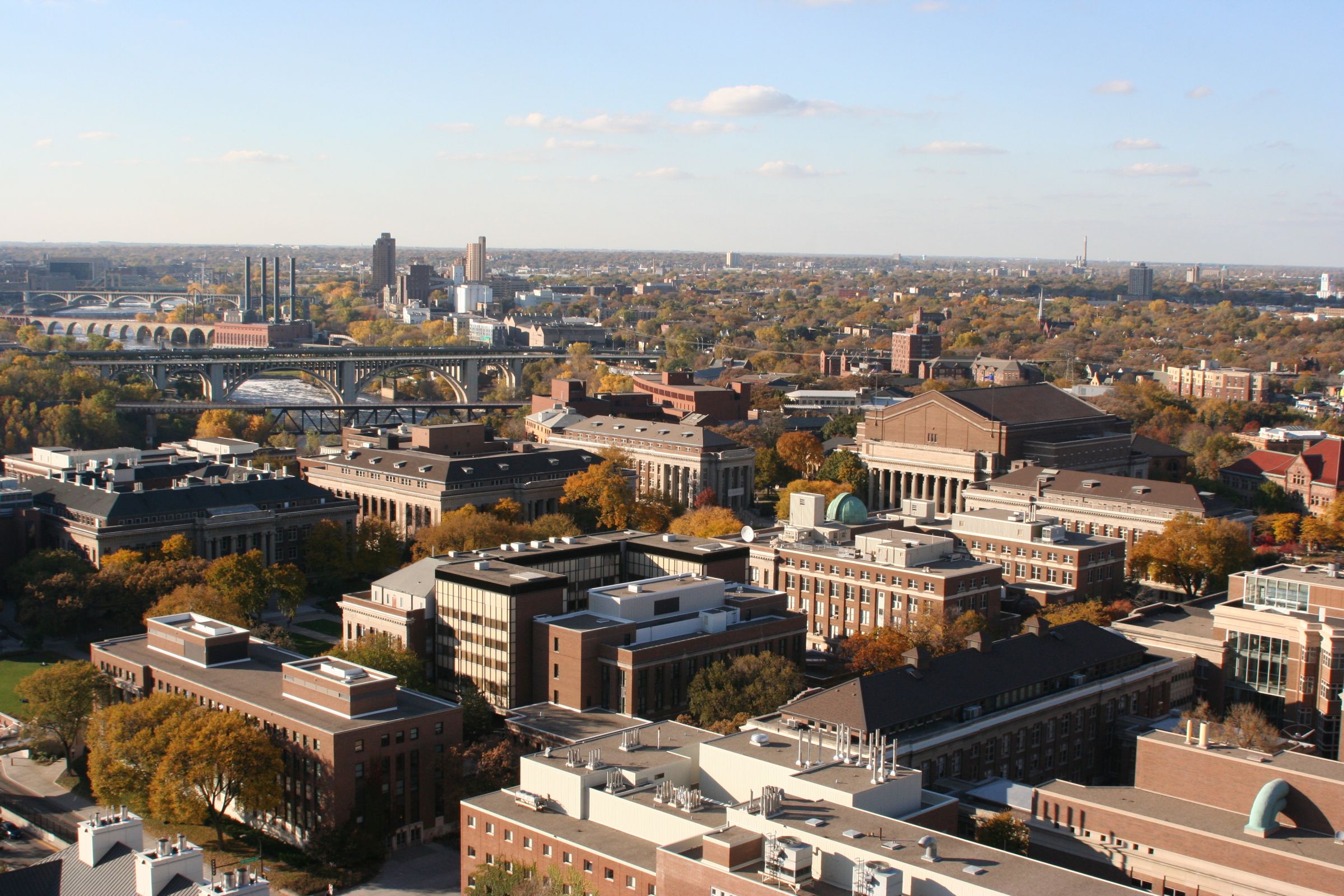
Minneapolis – Saint Paul, Minnesota
The Minneapolis-Saint Paul area is cosmopolitan at its heart and small town along its perimeter. The Twin Cities is the 16th largest metro area in the US, with a population of approximately 3.4 million people. It is the 2nd largest economic center in the Midwest, behind Chicago, and the second largest medical device manufacture center in North America. Minneapolis proper contains the 5th highest concentration of Fortune 500 companies in the country. The presence of the corporate headquarters for companies such as Target, US Bancorp, Xcel Energy and Ameriprise Financial provide a growing economy with great job opportunities for a candidate’s spouse or family. Additionally, an exciting arts and music scene, exceptional shopping, award-winning restaurants, wineries and craft breweries, and distinctive accommodations can be found throughout the area. Outdoor enthusiasts find plenty to do – even when temperatures dip, the variety of fun outdoor adventures does not. Sports fans cheer on their favorite team year-around. Big city bustle or small town charm, anyone can find the activity that suits them in the Minneapolis – Saint Paul Area.

Relevant Links
Interested in exploring roles similar to this Ophthalmology Department Chair opportunity? Learn about some of the other exciting opportunities available at the University of Minnesota Medical School by visiting the job post links below:





